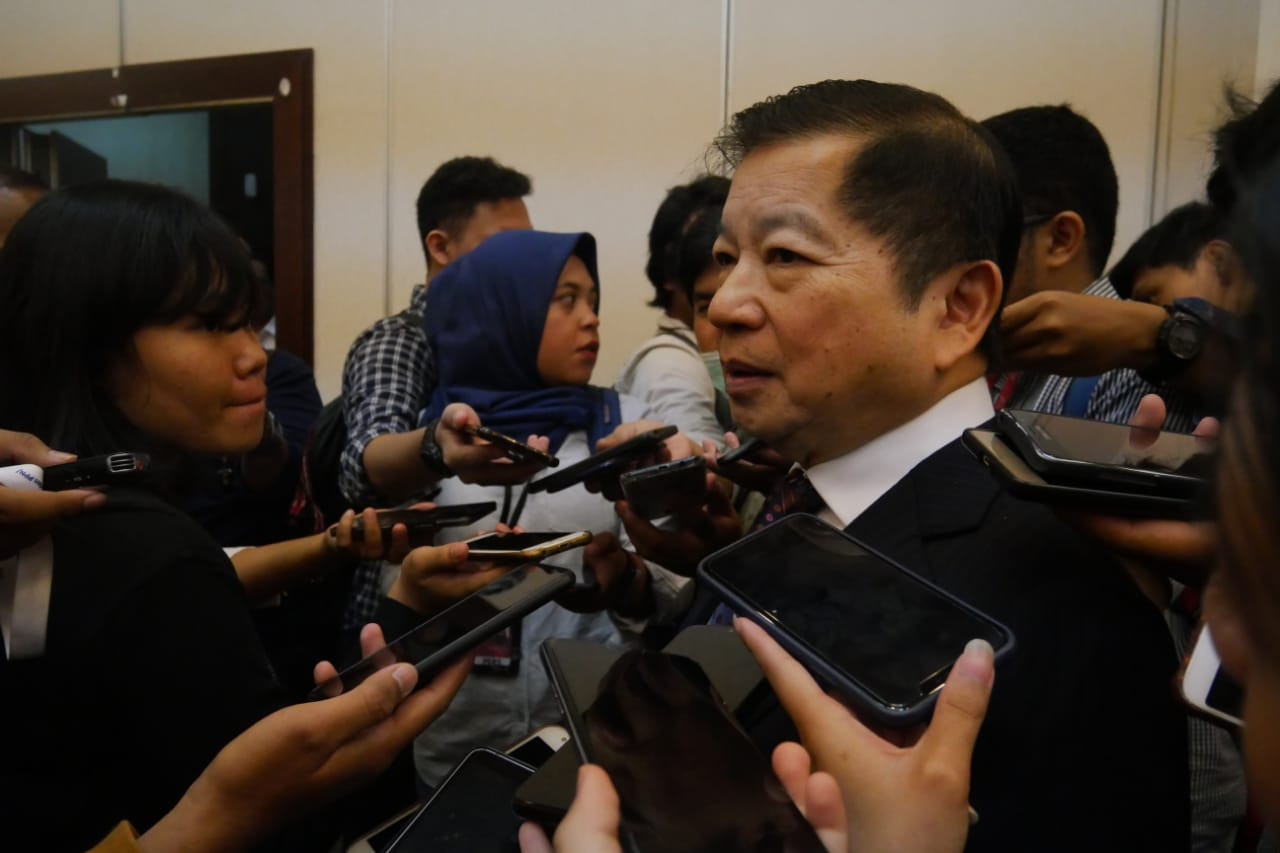Popular Reads
Top Results
Can't find what you're looking for?
View all search resultsPopular Reads
Top Results
Can't find what you're looking for?
View all search resultsLeadership crisis threatens PPP’s chances for 2024
A leadership crisis threatens to shift the United Development Party's focus away from preparing for the 2024 general elections, with the remarks of the recently deposed chairman Suharso Monoarfa angering many clerics.
Change text size
Gift Premium Articles
to Anyone
W
ith less than a year and a half until the 2024 elections, the United Development Party (PPP), the oldest Islamic party in the country, has been plunged back into turmoil after party chairman Suharso Monoarfa was deposed over a “slip of tongue” that angered Muslim clerics in the face of the party’s declining popularity.
Suharso, who took over the leadership position in 2020 after his predecessor Muhammad “Romy” Romahurmuziy was arrested on graft charges, was pushed out following the party’s national working meeting in Serang, Banten, on Sunday, initiated by a number of party executives.
The embattled leader was temporarily replaced by the party’s advisory council chairman Muhammad Mardiono, who also serves as a member of the Presidential Advisory Council (Wantimpres) and is a close ally of President Joko “Jokowi” Widodo. Mardiono will serve as the party’s acting chairman until Suharso’s term expires in 2025.
“[Suharso] wasn’t fired from the party […] The proper term is that he was stripped of his leadership role so as to end this controversy,” Mardiono said on Monday.
Suharso has in recent months been engulfed in scandals, including allegations of receiving gratuities linked to the use of private jets in 2020 and repeated demonstrations at the party’s Jakarta headquarters calling for his removal.
The straw that broke the camel’s back was his remarks on Aug. 15 that suggested he had to leave “envelopes” of money whenever he wanted to meet with Muslim clerics, which angered many.
Three of the party’s oversight councils – the Sharia Council, the Ethics Council and the Advisory Council – had asked Suharso twice in late August to resign but he dismissed the requests as a violation of internal regulations.
Suharso, who is also National Development Planning Minister in the Cabinet, “has put the PPP in the spotlight and created unwanted noise”, which brought the three councils to an agreement to dismiss him, said Usman Tokan, deputy secretary of the party’s Advisory Council.
The party has now split into two camps. One side is in support of Suharso’s removal and has submitted the national working meeting’s results to the Law and Human Rights Ministry, while another faction refuses to acknowledge Mardiono as the new party leader.
Days after his removal, during an unannounced visit to a meeting of the party's provincial legislative council (DPRD) members in Jakarta on Tuesday, Suharso still declared himself the official party leader.
“I am still the chairman of the PPP, as mandated by the ninth party congress in December 2020. Those who refuse to consolidate, step aside,” he said to a mixed crowd of loyalists and supporters of his dismissal.
Growing dissatisfaction
Ahmad Khoirul Umam, a political Islam analyst from Paramadina University, said that the scandal would likely erode the party’s base, which largely comprises traditional Muslim voters.
“The PPP is an Islamic party whose political power in the regions relies heavily on a network of local boarding schools. The ‘envelope clerics’ narrative has the potential to stick with Suharso and create resistance among the kyai [Islamic teachers] and santri [boarding school student] networks, which are among the bases of the PPP’s loyal voters,” Umam said.
Adi Prayitno, a political analyst at Syarif Hidayatullah State Islamic University (UIN), said he saw Suharso’s removal as just the tip of an iceberg and was reflective of the party’s dissatisfaction toward him.
“His removal is the accumulation of the PPP elite’s disappointment in Suharso’s underwhelming performance, which has resulted in the party losing momentum and may cause even more anxiety among party ranks if it does not pass the legislative threshold [for running in elections] as predicted in various surveys,” he told The Jakarta Post.
While the change of leadership would not alter the party’s overall political stance ahead of the 2024 elections, political analysts argue that the conflict could shift the focus away from winning those elections.
“Party members might spend all their energy and focus on the conflict rather than preparing for the 2024 elections,” Adi said.
The last time there was a rift within the party was 2014, following Jokowi’s election as President. At the time, Romy, who supported Jokowi, was named chairman of the party in a congress in Surabaya, East Java, in October, while senior politician Djan Faridz was elected to the same spot at a rival event in Jakarta. The feud lasted for more than a year, with Romy eventually winning out in court.
Separately, PPP deputy chairman Arsul Sani gave an assurance that the party would remain committed to the United Indonesia Coalition, a political partnership with the Golkar Party and the National Mandate Party (PAN) that was set up very early on to give the members an edge in the upcoming election season.










